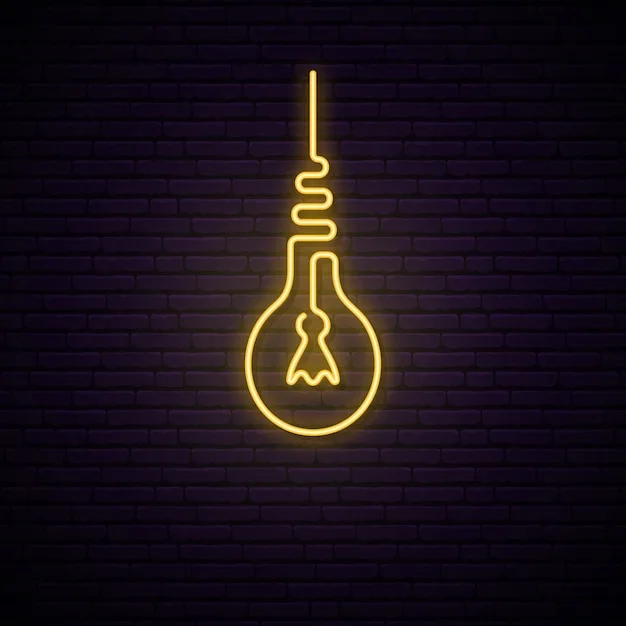One that comes to mind for me: “Whatever doesn’t kill you makes you stronger” is not always true. Maybe even only half the time! Are there any phrases you tend to hear and shake your head at?
“What doesn’t kill you makes you stronger.”
No. What doesn’t kill you creates trauma.
Yeah what didn’t kill me gave me a chronic disease. I’m weak as hell compared to 3 years ago.
For me it turned me into a depressed person who no longer feels emotion the way I did before. I’m 99% numb. The other 1% is manic attacks.
Shout out to my ex who started on #2 recently, as people keep telling me.
Maybe they got therapy and will be a better person this time. Maybe #2 will be the person they need. Whatever. Peace.✌🏽
I’m a fan of “what doesn’t kill you only serves to postpone the inevitable.” But maybe that’s a bit fatalistic.
I won’t judge. Life isn’t a picnic for most.
It’s not a picnic, and doesn’t have to be. Without the bad we wouldn’t always appreciate the good things in life. I’ve been fortunate, I’m living well these days, happily married, and haven’t suffered from depression in probably over a decade now (though anxiety is an ever present low buzz in the background. I’m used to it).
But that phrase is irksome. What doesn’t kill you doesn’t always make you stronger. Sometimes it fucks up your life. Sometimes it’s a roadblock, other times it’s life altering in unforeseen ways, and occasionally the consequences of what doesn’t kill is a tragic fate worse than death.
Tripping and falling might not kill me, might just lead to embarrassment. Or it could lead to CTE or irreversible brain damage from head trauma. Certainly not stronger for that sort of thing.
We all die in the end.
Sometimes much sooner than that.
Science has proven that what doesn’t kill you (like a virus) actually weakens you. But, conversely, you become more efficient at responding to that specific thing so it only appears like it made you stronger.
deleted by creator
What doesn’t kill you gets exrea practice for next time.
Well, no, the trauma is the event itself. The reaction to it is post-traumatic stress. If that stress gets in the way of your day-to-day functioning, then it could be called PTSD (but there’s like pages and pages of diagnostic criteria too).
Always appreciate it when a pedant joins the conversation. Thank you.
Not a fan of “it is what it is”. It’s called a thought-terminating cliche. It often means “I’m tired of talking about this, do it my way” when my boss says it.
I’ve always liked it. I guess it depends who is saying it because when my old boss said it, it meant more like, “this is the situation we’re in, let’s not waste time arguing about why it is the situation and let’s just focus on dealing with it and going forward”
Yeah it can have wildly different meanings depending on the circumstances in which it’s said. It can be “well we can’t change it, may as well get on with life” all the way to “well this discussion is not gonna change anything, let’s get on with fixing it”. Very similar, but polar opposite sentiments.
You bring an interesting point! So there’s a Japanese phrase this reminds me of: Shouganai (しょうがない) which translates to “It can’t be helped”. For me, this hits differently than “It is what it is”. Perhaps it’s the context, as I know it’s said about natural disasters like tsunamis and therefore has a connotation of the “getting on with fixing it” like you said.
Sure, not everything needs to be picked apart in detail. But, I never use the phrase myself. As someone else ITT pointed out, context matters, too.
I tend to say things like, “we should fix it now, worry about blame later”. Or something along those lines.
,I feel like this one is context dependent. Sometimes it’s just acceptance of the situation.
“Wish it weren’t so hot outside, but this is Texas in August. It is what it is.”
Context definitely matters. Your example wouldn’t bother me.
Some people seem to think it’s a mic drop in other contexts.
An entirely hollow statement, yet somehow ringing with apathy.
I use it for things that can be talked about for ages, but nothing can be changed about them. I don’t use it to terminate discussion, but more of a well understood quick hand for acceptance and sometimes resignation.
“Agree to disagree” is even worse, especially since often the thing you’re arguing about is an empirical goddamn fact and they are not entitled to “disagree” about it. That’s not having a difference of opinion; that’s just fucking being wrong!
It’s what it’s
Ooo I get that one, but kinda the opposite way. I tell someone it has to be done this way, or to a certain standard, for it to be right. They don’t want to, so they respond with that nonsense.
I like it. It’s premise is accepting things beyond your control, allowing someone to stoically move forward rather than dwell in anxiety and disbelief.
It do be like that
Tautology is tautology, as I say.
The first rule of the tautology club…
I use it when people keep complaining about situations they cannot change. Yes, we fell in the hole, yes it hurt, please just let’s focus on how to get out.
“Ah fuck, this hole sucks! Who even dug that here!? My shoes are dirty, my pants are a mess!” …
“Well… It is what it is. Let’s get out.”
I agree, when it’s used as a thought-terminating cliché. It’s also very applicable to impart acceptance of something that you can’t control.
I used it today to communicate my feelings on a topic I can’t control. Like, me venting isnt going to improve my or the questioners situation.
In principal I am against thought-termination. Sometimes, like a good dog, you gotta put a thought out of its misery
I use it more in acceptance, like if I’m late for work and I hit traffic. Short of driving up the shoulder like an asshole, I’m going to be late. So rather than be stressed for the rest of my commute, I just accept that I’ll be late. It is what it is.
It’s good for when talking about things beyond your control. They way your boss is using it is bullshit. In that case, it is what he’s choosing to decide it is.
Titties what titties. Why did I think this would be funny
“Everything happens for a reason .”
No. Fuck no, and fuck you. I DARE you to say that to the faces of the endless innocent people—many of whom are CHILDREN—who have been murdered, tortured, abused, enslaved, raped, ect.
I hate how people use this but not the phrase itself.
Everything DOES happen for a reason. It’s literal, precise, and accurate. Reasons dont need to be mysterious, aloof, or unknowable. They often are because we choose to stop learning but everything does happen for a reason so start looking for better questions
I mean, everything does happen for a reason. It’s just that most of the time, the reason is “because so-and-so is an asshole”. It makes it essentially a useless platitude, but not an untrue one. I definitely take issue with the implication of it, that there’s some supreme, all-knowing authority in the universe who has this complicated, labyrinthine plan for everyone that involves massive amounts of suffering. That whole “mysterious plan of God” thing is a way for Christians to take credit for all of the good stuff that happens, while downplaying all of the bad stuff that happens as just “part of God’s plan!” It’s insidious.
I think I get the sentiment that you are angry at but there is nothing wrong with that statement. It just doesn’t mean “whelp, there must be some higher purpose those things are serving that we don’t see” and is more like “there are some awful people doing bad things” or “they just were living in a seismic area” or “they had some genes not compatible with their survival”… There are always reasons. Not satisfying or purpose fulfilling reasons, just reasons.
Key indicator of privilege right there.
My preferred response to this is, “Entropy. The eventually and unstoppable heat death of the universe where none of this matters is the reason.”
I used to say this when I was a cringy 20-year-old, before I really saw and understood the world (and still believed in a god).
“He/she just tells it like it is” No, they are just saying things that resonate with you, but have no actual alignment with data, facts or morality. Simply saying things with no filter doesn’t equal “like it is”. I find it is usually attributed to, at best, oversimplified or completely ignorant statements, at worst, misleading and/or hateful statements.
They’re just saying that it feels good to their confirmation bias.
“they say racist things and i like that because people don’t like it when i say it. this way i can be racist but outsource the messaging”
good for other kinds of bigotry and douchebaggery
You just reminded me of this
Those who champion “brutal honesty” are more interested in the brutality than the honest
In response to gross privacy violations from big companies and governments:
“If you’ve done nothing wrong, you’ve got nothing to fear.”
Here’s a great response to that:
If you’re at a house party and you need to take a shit, do you do it with the door wide open so everyone can see and smell you? Or do you actually understand, when it comes down to it, that there are valid reasons for wanting privacy other than wanting to get away with something wrong or illegal?
“it’s just a few bad apples”
That’s only half the saying. It is used most of the time as if the full thing is “a few bad apples aren’t a problem because the rest are fine” rather than the real thing “a few bad apples spoil the lot.”

Yeah. I always vehemently agree with the person misusing. “Yes! That’s exactly it. A few bad apples spoil the bunch. Perfectly captures the problem, friend! Good call.”
“Quick question” just means you want a quick answer
I use this, and I struggle a little to disengage when the person I ask interprets it as “help me figure out how to solve this” when they don’t actually have the “short answer”.
I think there is rarely a short answer despite what the question implies
Yeah, that’s fair, especially in software work.
Whatever doesn’t kill you makes you numb and traumatized, not stronger. Big difference.
Whatever doesn’t kill you might make you stronger, but it might also make you weaker. It’s highly dependent on the circumstances.
Jimmy Carr said it best:
My father always said ‘Whatever doesn’t kill you makes you stronger…until the accident.’
I liked the quote from Dr. Hibbert on the Simpsons:
“You know what they say, whatever doesn’t kill you makes you stronger!”
“Oh ho ho ho, no… It’s made you weak as a kitten!”
Yeaaahhhh Nietzsche was making a very different point about convalescence but of course popular culture bastardized it. If Nietzsche knew that he was going to become an anthem for white girl positivity, he would… well, he’d probably gloat because he predicted that. But his gloating would look like misery.
Tell that to everyone with diabetes 2 that.
I’m sure I’ll get guff for this but, “common sense”. Throughout my youth, when people told me something was common sense, I usually thought they were wrong.
I’ve found I like interpretating phrase “common sense” akin to this scene, from blazing saddles.
I hate the phrase in political contexts.
“We need common sense (insert) laws!”
In other words, you either agree with me or lack common sense.
That was exactly how adults used the phrase a lot for me as a kid, which made me never use it myself, ever.
deleted by creator
When you forget what you were about to say:
“Must not have been important”
How in the ever-living fuck could anybody come to that conclusion?
I’d only ever say it while referring to myself, and when I do it’s not of a consolation to myself or maybe as a way to tell the other person to not feel sorry about distracting me and making me forget. Is that the same way you interpret it?
I appreciate this alternative interpretation. Many of the responses here are helping to show the many lenses that can be looked through at the same phrases!
Not important to them, very important to you.
Every single time that’s happened to me and I later remembered what it was, it wasn’t important.
I meean, if it was really important, it’s very unlikely you would forget it. We use that saying a ton here
“Make America Great Again” 😂🤣
The MAGA street salesman I see on my way to work now has “KEEP America Great” merchandise and I’m super tempted to pull over and act super enthused that he supports Harris
In Montana those people started labeling everything the “Biden-tester-harris agenda” 💀 like come on, they only added in the Harris part a couple weeks ago.
Clearly many of us would define that differently. Mine is probably equally fantasy, but it means working toward things we can be proud of, things that build a better future for all humans together, things that make a positive impact.
"No pain, no gain. "
As someone who’s been running for over 30 years and working ou for 20, if there is pain, there is injury. When there is injury, you take a break and regress. People may say that muscle pain or stiff muscles are a sign of a good workout, not an injury. However, even with those your risk of injury is much higher, and you’ll eventually hurt yourself. “No pain” should be one of the outcomes of smart exercise, not an admonishment for not working hard enough.
I think this extends to “what doesn’t kill you makes you stronger”.
Mentally, maybe, if you’re the right crop for the circumstance. But, generally, no. It’s such an off target idea.
“Practice makes perfect.”
Let me tell you about my 7th grade all county band audition, where I showed up and skillfully played 40 measures of not what the sheet music said because I misread it and practiced what I misread.
“Practice” needs some kind of mechanism for feedback and correction, such as a coach or instructor.
I always liked “practice makes permanent”
stealing that.
“This too shall pass” when faced with a hurdle but a “savor this moment” when something is supposedly good. If only life worked that way, you wouldn’t ever be complaining.
I’m with you on “this too shall pass”. My family uses this like it’s their damn catchphrase and while I’m sure the intentions are good, sometimes I would like validation when I complain about my life being a shit show, not just an idle ‘this too shall pass’. Might as well have just shrugged and walked away.
“to be honest”
So, you’ve been dishonest until this point?
“To be honest” is mostly used in two situations:
- to warn the listener that they might not like what they’re going to hear; e.g. “to be honest your lasagna is a bit too salty”
- to highlight an apparent contradiction; e.g. “I like lasagna, but to be honest I’d rather eat pierogi today.”
It should almost never be interpreted literally.
deleted by creator
That’s why I prefer “to be frank” or “to be blunt.” Same implication but without that possibility.
Stand-up meeting: “to be frank, Frank is starting his holiday in Frankfurt next week so…”




























